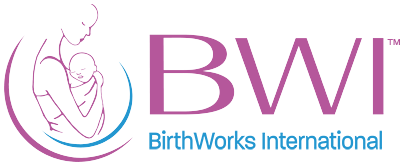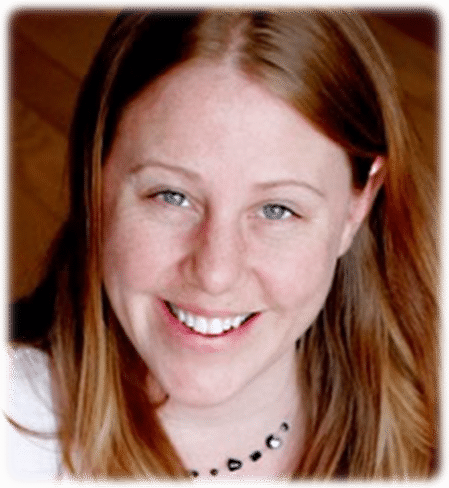From Pithiviers to the Future of Homo... Celebrating the Life of Dr. Michel Odent
7 July 1930 to 19 August 2025
When asked, “What made you become interested in birth?” Michel responded, “Oh, I’m not so interested in birth… I’m interested in humans and the survival of humanity!” -BirthWorks’ Turning Truths of Birth into Action Conference 2017
Dr. Michel Odent was educated as a surgeon in the 1950s. But his work—and as a result the lives of the many who knew and learned from him—changed forever when he was asked to take over obstetric duties at the Pithiviers hospital (in France). In charge of the surgical and maternity units in Pithiviers from 1962 to 1985, Dr. Odent quickly became a leader and a pioneer in maternity and newborn care. Through his decades of work and research, Dr. Odent’s perspective was always global and always provocative. He introduced topics and ideas that made us think more globally.
From his time at the hospital in Pithiviers, Dr. Odent insisted the role of caregivers is “not to control but first not to disturb…" the natural process of birth, explaining that unnecessary interventions in birth disturb the “natural cocktail of hormones” that know exactly what to do during the birth process. Of over 1,000 women giving birth at the Pithiviers birthing unit, only two decided to lie down to give birth. Women instinctively felt better giving birth in upright, gravity friendly positions. The hospital’s statistics for natural birth from Dr. Odent’s time there were better than in the USA and many other places.
Michel Odent questioned things we took for granted. One example was the use of the word “doula.” He believed that women are born with the knowledge about how to give birth. Doula translates from the Greek meaning “servant”, which could be understood to mean that a woman might depend on a doula to give birth. Michel preferred to use the phrase “para Mama” (meaning ‘with Mama’) as a way to remind us that women have the power to give birth on their own, all the while still believing in the value of the doula as a support person.
Michel was also a walking encyclopedia, and could remember meeting someone at a conference years ago. When he asked BirthWorks International to host his database, we immediately agreed. This database has more than 900 studies that, although not randomized controlled studies, provide glimpses into what can happen if the primal period is disturbed.
“I want you to become epidemiologists,” he would say, encouraging us to study the database key topics and discuss ways in which we could make the Primal Period —the time from conception to the end of the first year of life—safer, knowing that disturbances in the primal period can affect humans into adulthood. Learn more here about Dr. Odent’s work on Primal Health.
Michel was a guest speaker at all of our BirthWorks conferences. It so happened that, at the one held in 2007, he reminded us, “I’m turning 77 on July 7, 2007 at your conference.” Immediately, this became an auspicious occasion, and we began plans for a birthday celebration. I played the keyboard as we all sang a song from Pithiviers, and he was so happy opening his present and blowing out the candles on his birthday cake. Michel Odent is worth celebrating!
The depth of Dr. Odent’s lectures and topics took us deeper into our souls, often changing our perspective of the human body and birth. Here are some intriguing examples:
One lecture was titled: “Why are human births special: The Birth of Homo, the Marine Chimpanzee.”
- Michel explained that although animals and humans are both mammals, it is the nature of the placenta and the brain that differentiate them from each other and, in particular, the neocortex. Yet, at the same time, he questioned: Is it possible that the neocortex in humans makes it more difficult for humans to birth instinctively?
Michel was fascinated with hormones and how they help labor and create love. One of his books was called The Scientification of Love!
- In one lecture he looked at the difference between oxytocin that builds naturally when women labor undisturbed versus synthetic oxytocin that is given as medicine to induce and speed up labor. He explained that when oxytocin is introduced intravenously (by IV), it does not reach the brain, or have the ability to influence other hormones in labor, due to the blood brain barrier. It has only a peripheral effect to contract the smooth muscle of the uterus, breast, etc.—but it has no behavioral effects. Oxytocin received via IV is not a love hormone.
- Oxytocin seems to depress memory. This is an advantage after birth when endorphins and oxytocin are high and a woman forgets about her labor. In a study of rats trained to use a labyrinth maze, the ones given oxytocin could not find their way.
In another lecture he discussed oxytocin receptors:
- Different women have different numbers of oxytocin receptors. While we used to just look at the levels of hormones, we are now also looking at receptors. Women may need to develop receptors—and this may be the reason a second baby is often easier to birth than the first. The first interaction of receptors and target hormones seems to be permanent.
Michel Odent’s conviction was that people do not understand the importance of privacy for childbirth.
- Duration of labor correlates with how many people are around. The best environment for easy and fast births is a small room with semi darkness and only an experienced mother or midwife knitting in the corner. The need for privacy needs to be rediscovered.
- Conditioning from environmental factors is important. If women are familiar with the place they are giving birth, it may be easier to labour and birth than if they are not familiar with the place. Michel developed a special interest in environmental factors influencing the birth process. He introduced the concepts of home-like birthing rooms, birthing pools and singing sessions for pregnant women.
- There is a current misunderstanding of birth physiology. Those who use the words “coach”and “manage” aren’t understanding birth physiology.
Through many decades of research and writing, Michel contributed to the support and understanding of birth and the preservation of humanity in ways that cannot be measured.
He founded the Primal Health Research Centre in London, and designed a Primal Health Databank, connecting early experiences to later-life health outcomes. This compilation of epidemiological studies explores correlations between what happens during the primal period and health later on in life. These interdisciplinary studies cover decades of work, up until 2021. BirthWorks is proud to have been the key supporter of this project all along.
Michel Odent is also well-known for being the author of the first articles about the initiation of breastfeeding during the hour following birth, the first article about the use of birthing pools during labor, and the first article applying the “Gate Control Theory” of pain to obstetrics.
And he frequently shared his learning about a real “fetus ejection reflex”, and the idea that reduced neocortical activity is a key to rediscovering the basic needs of labouring women and supporting that reflex.
In his 1986 book, Primal Health, he provided evidence that homeostasis is established during the “primal period” (fetal life, birth and the months following birth): this is the phase of life when human basic adaptive systems are adjusting their “set point levels”.
Over his long life, Michel Odent authored 14 published books, which have been translated into 22 languages. His books are: Birth Reborn; Primal Health: Understanding the Critical Period Between Conception and the First Birthday; Water, Birth and Sexuality: Our Primeval Connection to Water and its use in Labour and Therapy; The Farmer and the Obstetrician; The Caesarean; The Functions of the Orgasms: The Highways to Transcendence; Childbirth in the Age of Plastics; Childbirth and the Evolution of Homo Sapiens; The Scientification of Love; Do we Need Midwives? [Yes—of course! Countries with more midwives than obstetricians have fewer cesareans and better outcomes!]; The Birth of Homo, the Marine Chimpanzee: When the tool becomes the master; The Future of Homo; Planet Ocean: Our Mysterious Connection to Water; and his latest book Can Humanity Survive Socialised Birth?
This most recent work, written while he was in his 90s, focused on the possible evolution of Homo sapiens in relation to the modern ways to be born and the concept of Womb Ecology—what he called “the most vital branch of human ecology”. In his words, this is “...the life period with the highest adaptability and vulnerability to environmental factors—the period inside the womb, including the birth process.”
Michel travelled extensively all over the world working on ways to help women believe in themselves and to empower them in their birth experiences. He always talked in the language of his audience (i.e. relating to whomever he was speaking to, whether they were medical providers, birthing parents, or perhaps the general public). But he did not want to be disturbed while lecturing and insisted on everyone staying present!
Michel was truly a teacher here ahead of his time—preparing the way for a better birth and better world, always speaking from his heart. Learn more about his work here.
I read this poem to Michel in 2017 as we honored him at our conference. We will share it again.
Thank You Friend
We always come to you, dear friend
And go away comforted
With some new enrichment of the heart.
More faith, and less doubt,
About birth, about life, about humanity
Giving us more courage for the days ahead.
And often in great need
Coming to you, we went away
Comforted indeed.
How can we find the shining words,
The glowing phrase that tells
All that your teaching has meant to us?
The world was waiting for you.
God sent you here, ahead of your time,
Preparing the way and uplifting us all
There is no word, no phrase for you.
You are a living legend
On whom we so depended
We can only express gratitude
And say:
Thank you, precious friend.
Celebrating the Legacy of Michel Odent
7 July 1930 to 19 August 2025



